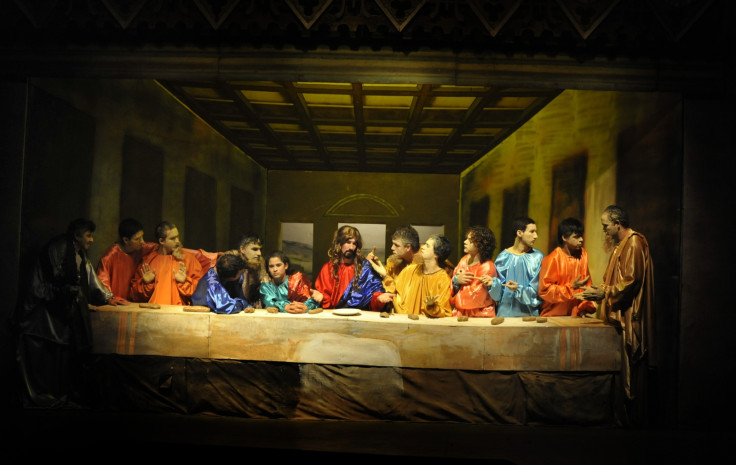Was Jesus Tooled Up? Bible Analysis Claims Disciples Carried Weapons During Passover

Jesus may have been crucified because his disciples were carrying swords, according to new analysis of the New Testament books.
Dale Martin, a professor of religious studies at Yale University, says that the research could explain the reasons behind Jesus' execution and that he may not have been the pacifist he is often portrayed as.
The books of Mark and Luke show that at least one of Jesus' followers was carrying a sword when Jesus was arrested after the Last Supper, at the time of the Jewish Passover holiday.
Martin's analysis, published in the Journal for the Study of the New Testament, highlights that one disciple, Simon Peter, used his weapon to cut off the ear of one of those arresting Jesus, according to the Gospel of John.
Speaking to Newsweek, Martin says historical documents show it was illegal at the time to walk about armed in Rome and across other Roman cities. There are no legal records still intact from Jerusalem but based on Roman history, leaders would not have tolerated armed Jewish groups during Passover.
"Just as you could be arrested in Rome for even having a dagger, if Jesus's followers were armed, that would be reason enough to crucify him," says Martin.
Harold Attridge, a former dean of the Yale Divinity School who was not involved in the study, told Newsweek that Martin's analysis is valid.
It is "likely the Romans would have been severe against someone seen as a political threat," as would have been the case with Jesus, he said.
Other experts say the research brings to light another intriguing question: why were Jesus' followers armed during a religious festival in the first place?
Bart Ehrman, a professor at the University of North Carolina, told Newsweek that Jesus may have been in favour of fighting.
"It's making me rethink my view that Jesus was a complete pacifist," he says. "And it takes a lot for me to change my views about Jesus."
The reason for this favour of fighting is addressed by Martin in his analysis, as he suggests Jesus and his disciples were potentially expecting to be involved in an apocalyptic conflict, in which the divine forces - angels - would destroy Herod's temple and Rome, bringing in a holy reign.
Martin adds that a similar scenario is described in the Book of Revelation.
However, not everyone agrees with Martin's analysis. Paula Fredriksen, a historian of ancient Christianity at Jerusalem's Hebrew University, says the research is flawed.
According to Fredriksen, it is not legitimate to assumed carrying arms was illegal in Jerusalem because it was law in Rome, as control of Jerusalem was not that tight. When thousands of Jews took to the city during Passover, she says, it would have been impossible to police them.
© Copyright IBTimes 2025. All rights reserved.






















